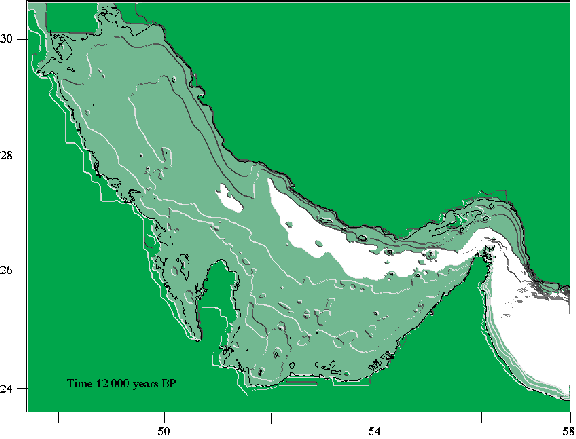Okay, bicicleur, based on the fact that you quoted a comment by Maciamo about how the Black Sea could have been flooded, I thought you were suggesting that water from the Persian Gulf flooded the Black Sea, which makes no sense, IMO, since there are and were some mountains in the way. But if you're suggesting that the flood myths in the area related to flooding in what is now southern Iraq and the Persian Gulf, that's possibile but it doesn't have anything to do with the flooding of the Black Sea and the introduction of salt water from the Mediterranean into what had been a fresh water lake, which definitely did happen. There are things like the shells of fresh water snails on the floor of the Black Sea that are pretty much impossible to explain except in terms of other evidence showing that the Black Sea was at one point a smaller fresh water lake. The only question mark that some of the archeologists have is whether Pitman and Ryan are correct in the date they assigned to the event, since dating things found on the bottom of a lake or sea is tricky. Some have argued for an earlier date for the Mediterranean to have flooded over the Bosphorus whereas others have argued that the Black Sea could have initially filled with fresh water from glaciers and rivers, overflowed into the Bosphorus and triggered inflow from the Mediterranean. Maciamo's comments are quite pertinent in terms of that latter hypothesis. Debating where the flood myths came from doesn't really change the fact that the Black Sea was once a smaller, fresh water lake that became a much larger salt water sea, no doubt destroying many settlements around its rim. How fast that happened would have determined whether that change caused an apocalypse or a gradual move to higher ground. And the need for refugees from a lost civilization to relocate would explain those advanced gold artifacts seeming to appear out of nowhere - the civilization that created them was build on the foundation of an earlier civilization whose towns are now under the Black Sea. Just as good a candidate for flood myths as flooding in southern Iraq and much more relevant to this thread, IMO.


